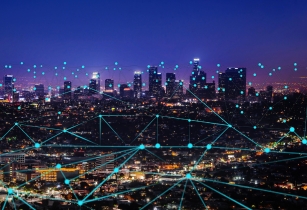Accelerated by urgent demands for increased connectivity, reduced costs, and improved operational efficiency ? there has been a rapid growth and development in digitalisation across the world?s major industrial sectors
With the impact of the pandemic and the increasing need for pursuing greener and sustainable alternatives, the utilities sector, an underlying facilitator for all industries, has witnessed an increase in the adoption of digital technology and is expected to climb as power demand rises to drive economic development.
Transforming operations and systems with digital technologies can create substantial value for utility companies. Studies indicate that potential reduction in operating expenses of up to 25%, and performance gains of 20 to 40% in areas such as safety, reliability, customer satisfaction and regulatory compliance is also achievable.
These incentives have led utility companies to rapidly adopt digital technologies including the reimagining of customer journeys, adding digital leak detectors to gas grids and water supply, using predictive models to schedule maintenance and other asset-management activities.
Efficient operations and lower costs mean that utility companies can pass on the savings to consumers, which is especially important in the current challenging landscape of high-energy prices.
Emerging digital technologies, such as smart grids, industrial IoT and big data are influencing the power industry to transform into more agile, cost effective, and sustainable business models. For example, there is an increasing use of sensors and meters to detect leaks and reduce consumption through technologies, such as smart-home appliances and smart-street lightings as part of smart-city plans that are being developed and implemented.
As the digitalisation of power distribution and retail companies is expected to continue to accelerate this decade, Frost & Sullivan says that digital investments are directed toward three main areas: enhancing customer service, optimising grid operations, and developing connected businesses. By incorporating cloud computing, big data, analytics, and IoT solutions, utilities and retailers are transforming their businesses beyond commodity selling.
Sustainability push
With global energy demand set to double by 2050, major sustainability concerns are pushing an energy efficiency agenda forward, all over the world. The UAE has to meet ambitious targets as part of the UAE Energy Strategy 2050, which includes reducing the carbon footprint of power generation by 70%, while also reaching Net Zero by 2050. These developments, coupled with technological disruptions, are expected to be key to accelerating global economies.
Christopher Hudson, president, dmg events, the organisers of the World Utilities Congress, said, ?Adopting digital technologies will help utility company managers increase the efficiency of their assets, save energy and water, and lead to an overall more sustainable country.?
?Data will also play an integral role in decision making, both for current projects and future developments, paving the way for a new energy ecosystem,? Hudson added.
The World Utilities Congress will delve deeper into the digitalisation of the utilities sector with a dedicated strategic panel on Digital Transformation and Technological Innovations. The Congress will take place from 9-11 May in Abu Dhabi?s ADNEC, convening more than 10,000 global utilities professionals to explore critical topics, including the future of low carbon power and water supplies.
Hosted by TAQA, the global exhibition and congress provides an unrivalled platform to explore the latest products, innovations, and technological advancements across the global utilities landscape. It will bring together water and power leaders to provide insights on building resilient low carbon business models with agile automated digital operations.







